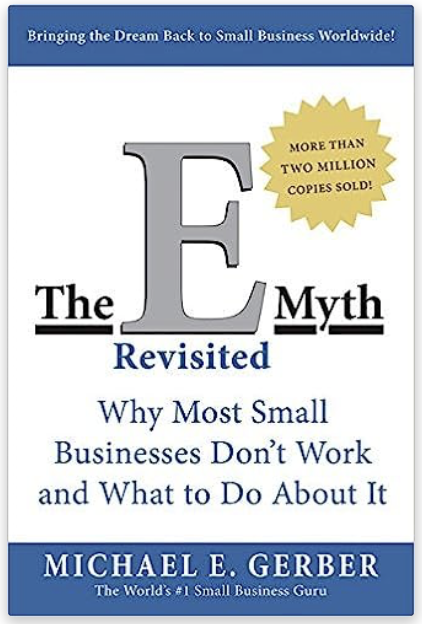
Book Review: 'The E-Myth Revisited'

This book aims to help small business owners build an entrepreneur mindset to successfully maintain and develop their businesses. In general I feel like the suggestions given are too idealistic and to some extent even a bit hollow (perhaps it’s just me not having any hands-on business experience :p), but some ideas are still worth sharing.
The recent layoffs across industries forced me to face the cruel fact that it’s us needing the job, instead of the job needing us. In addition, the emerging AI technologies like ChatGPT make people more concerned about their job security than ever. Which makes me wonder how to deal with the seemingly conflict company’s business value V.S. employee’s individual value. I think some prospectives shared by the book may help us understand and reconcile it.
build a business that works without you
The most important idea I learnt from this book is what does entrepreneurs really do, i.e. they build a business that works without them. Many small business owners start from doing things that they are passionate about, but end up exhausting themselves by doing all the detailed works without being able to take a break. They work as technicians rather than entrepreneurs. Entrepreneurs focus on developing an effective system that can be operated by people with minimum skill requirement, and work on orchestrating the strategic plans to fulfill their primary aim (e.g. what value they want to deliver to the public, how much profit they want to make, etc.). Now recalling all the “entrepreneur ideas” that I had, it’s more like me wanting to have a different job rather than having a business :p.
system-dependent V.S. people-dependent business
The book has emphasized multiple times that successful business runs on effective system that can be operated by people with minimum skill requirement, which is understandable because people would introduce more uncertainties than systems, and partially explains the layoff, i.e. under a functional system, employees can be easily replaced. At first this may sound like people with advanced skills are not needed, but in fact systems and human talents are integrated. Good systems make the business robust and efficient, while at the same time systems need to be constantly improved by talented people. The lesson learnt for us might be to proactively understand and improve the system, instead of being passively manipulated by the system.
the work is a reflection of who we are
It’s a great reminder that we are not just doing the work for the manager or the company, how we do the work reflects who we are inside. I could use it as a motto to motivate myself :D.
Lastly, I would like to share my favorite quote from the book, though it talks about business, but I think we could replace the word “business” by anything else in the world.
The business is a place where everything we know how to do is tested by what we don’t know how to do, and the conflict between the two is what creates growth, what creates meaning.
